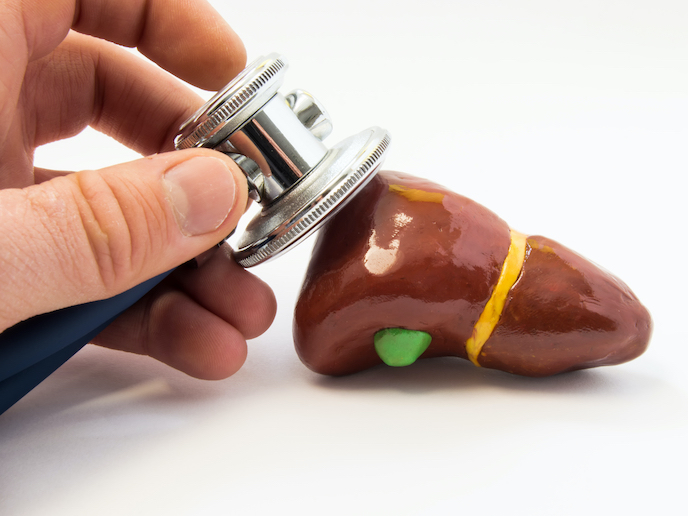Making a diseased liver healthy again
The World Health Organization has sounded the alarm on obesity, predicting that the number of obesity-related diseases will double – if not triple – over the next two decades. Amongst those diseases is non-alcoholic fatty liver disease, or NAFLD. This chronic, often asymptomatic disease can cause non-alcoholic steatohepatitis (NASH), a pathological fatty liver disease that can lead to liver dysfunction or even liver cancer, neither of which can be efficiently treated. “NAFLD has become the most prevalent liver disease in both developed and developing countries,” says Mathias Heikenwälder, who leads the German Cancer Research Center’s Chronic Inflammation and Cancer Division. “Consequently, hepatocellular carcinoma, or liver cancer, has one of the highest growth rates of patients in Europe, India and the United States, amongst others.” Unfortunately, the disease lacks the predictive markers needed to identify which NASH patients are at risk of developing liver cancer. Furthermore, efficient therapies for treating NASH, preventing NASH from liver cancer transition, or controlling NASH-induced liver cancer do not exist. But this could soon change, thanks to the advancements made by the EU-funded FAITH project. “Our goal was to develop specific, side-effect-free therapeutic treatments,” remarks Heikenwälder, who served as the project’s lead scientist. “To do this, our research looked at the underlying mechanisms that trigger this inflammatory liver disease.”
Anti-platelet therapy reverses NASH
Whereas past research has focused on using small molecules to block fibrosis and other forms of liver damage, the FAITH project investigated the link between inflammatory cells, aberrant liver metabolism, and NASH. According to Heikenwälder, the reason for this approach is twofold. First, NASH is an inflammation-induced, aberrant metabolic disease and, second, while fibrosis is linked to NASH, it does not cause it. By conducting preclinical trials in mice and human tissue, researchers found that immune cells are key to initiating and maintaining NASH. The project also demonstrated that platelet count, activation and aggregation all increase in a NASH-diseased liver, with these platelets actively attracting and retaining immune cells to and in the liver. “What these findings indicate is that conventional anti-platelet therapy reverses NASH and, in part, fibrosis in a therapeutic fashion,” explains Heikenwälder.
A new approach to treating NASH and related liver cancer
Based on this work, FAITH researchers, who received support from the European Research Council, have proposed a novel approach to treating NASH and NASH-to-liver cancer. The approach uses platelet-specific antibodies or nanobodies to block the pro-inflammatory function of platelets without affecting platelet-haemostasis. “Our preclinical models definitively show that the use of platelet-specific anti- and nanobodies can make a fatty, diseased liver healthy again,” notes Heikenwälder. “We believe our approach can be used to not only treat NASH, but also prevent a fatty liver from developing into liver cancer.”
Laying the groundwork for next-generation treatment
FAITH’s anti-platelet therapy and treatment have since been reproduced in larger studies for treating liver cancer and fibrosis. “Our work represents the future of treating chronic liver disease and lays the groundwork for developing drugs to both treat NASH and prevent its progression to cancer,” concludes Heikenwälder. Although the project is now over, researchers continue their work in the fields of NASH, platelets and liver cancer. In addition to preparing for a large screening of their proposed treatment, the team is also working with experts to develop more efficient methods for producing the necessary antibodies.
Keywords
FAITH, liver disease, anti-platelet therapy, non-alcohol fatty liver disease, fibrosis, liver cancer, NAFLD, non-alcoholic steatohepatitis, NASH, fatty liver disease







